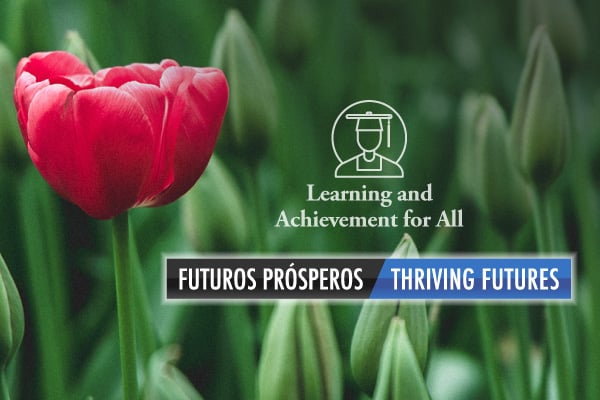
PWCS is the recipient of a three-year National Oceanic and Atmospheric Administration (NOAA) Bay Watershed Education and Training grant. The grant of approximately $369,000 was applied for and will be managed by PWCS Energy Management and Sustainability. The money will be used to fund "a community-connected and curriculum-embedded environmental literacy program."
Melinda Landry has been selected to lead the effort as the PWCS environmental literacy coordinator. Landry is overseeing the creation of a divisionwide plan that will meet the goal of providing sustained professional development for environmental literacy instruction through project-based learning opportunities and developing environmentally literate graduates.
Landry has been a teacher for 20 years, 15 of which have been as a PWCS teacher. Most recently, she taught advanced placement (AP) biology and environmental science at Patriot High School. This school year, Landry has been creating a community-based network to facilitate collaboration among external and internal stakeholders in support of student environmental literacy. The network will anchor environmental education to the community's interests, issues, and capacities. Students will be involved through the establishment of a divisionwide environmental youth network comprised of students in grades 8-12 who are eager to make an environmental sustainability impact in their school and community.
In the plan, school buildings will be used as a teaching resource. The use of school buildings in hands-on activities will help foster a connection between what students are learning in the classroom, the actions of community partners, and the community's environmental quality.
Landry explained, "By using our school buildings, cross-curricular environmental literacy objectives can be met. Teachers will be provided with a school sustainability measures profile. The personalized profile will include information such as energy usage trends, sustainability liaison contacts, links to real-time data sources, contact information for potential external partners, and watershed connection information."
Teachers and school administrators will be able to develop activities to embed into preexisting curriculum or use as standalone lessons. For example, students can evaluate the energy usage data for their building, then propose realistic, cost-effective methods to reduce their building's energy footprint, or they can participate in a building waste audit, that calculates waste per student, then propose methods to reduce waste output.
Brian Gorham, supervisor of Energy Management and Sustainability, explained, "Programmatically, the division has a 10-year history of energy management and conservation of natural resources. The grant funding affords the opportunity to develop a divisionwide environmental literacy plan that extends this work while providing educational resources for students, teachers, staff, and the community."
Environmental literacy is a major component of the School Board's Sustainability Initiative and the division's Strategic Plan. For more information about Energy Management and Sustainability, visit their webpage.

